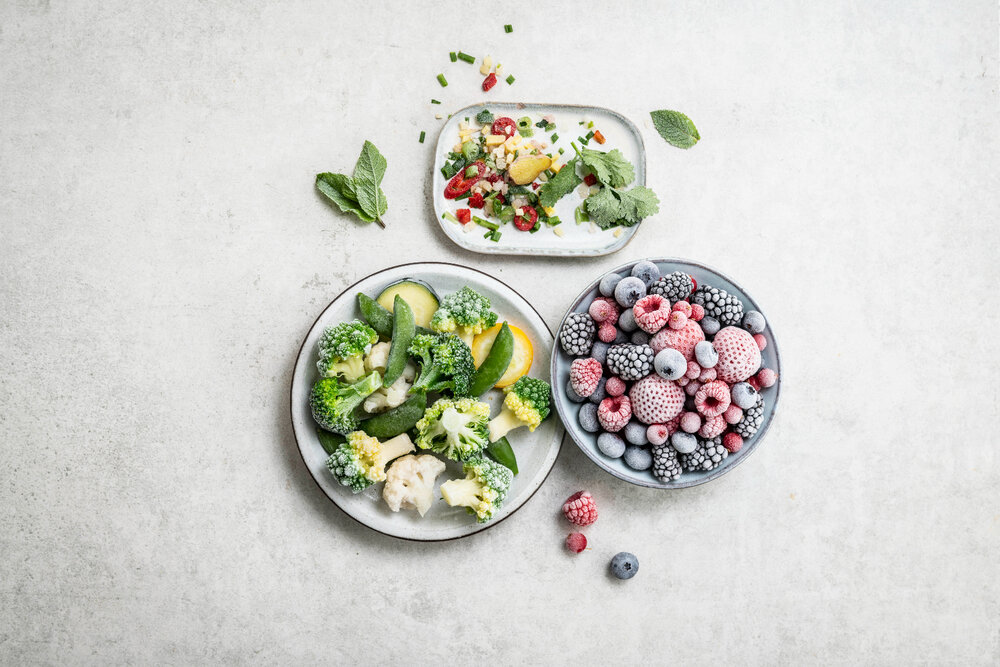
How to prepare?
No need to thaw
Fresh-frozen vegetables don't need to be defrosted before use. This better preserves their texture and vitamins.
Boil, steam or fry the vegetables briefly
In order to retain all the vitamins, minerals, texture and the full flavour of fresh-frozen vegetables, it is important that you cook them as briefly as possible. This applies to boiling, steaming as well as frying.
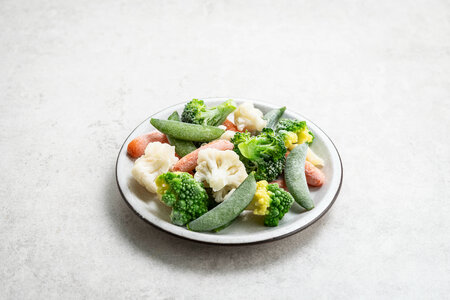
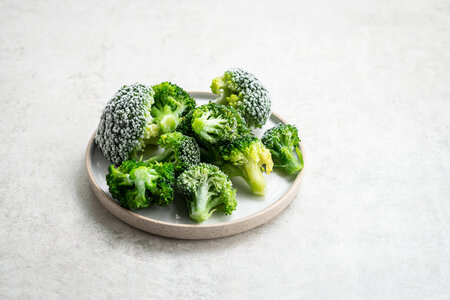
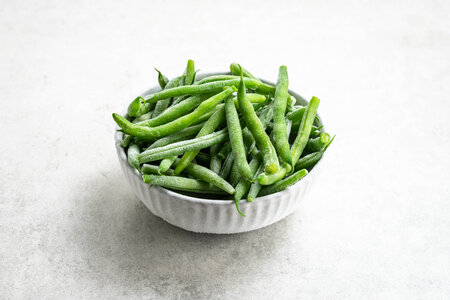
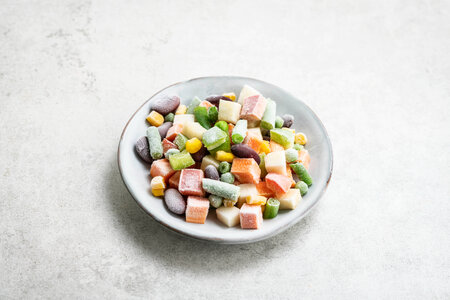

Fresh-frozen vegetables and fruit:
bursting with vitamins
Freshly-frozen vegetables, herbs and fruit have a major advantage: they retain most of their nutritional value because they are frozen very quickly after harvesting. That makes their colour, texture and taste richer than those of most fresh produce purchased in store, with frozen products also containing more vitamins.
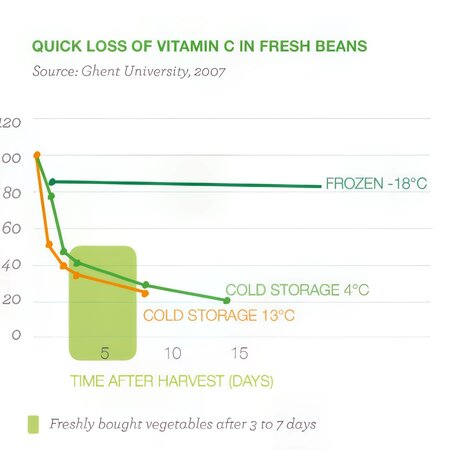
The nutritional value of all fruit and vegetables declines from the moment of harvest. As such, the vitamin content of fresh produce imported from other continents may have reduced significantly by the time it is purchased. This is especially true of seasonal fresh fruit and vegetables, such as beans imported fresh from Kenya, for example. The long transport time over water, land and air, as well as the storage time before consumption, cause much of the nutritional value to be lost before the product reaches the end user.
In contrast, freshly-frozen fruit and vegetables are frozen directly after harvest in the factories close to the fields in the country of origin. Freezing ensures maximum preservation of the nutritional content, and enables consumers to purchase top-quality seasonal products at any time of the year.
FAQ
Are colouring agents added to carrots and peas to give them their lovely orange and green colour?
Blanching fixes the natural colour of the vegetable and makes it more intense. The deep green colour of garden peas or the orange of carrots is not produced with colouring agents. The colour comes from the natural pigments in these vegetables coming to the surface.
It is necessary to add preservatives to be able to keep fresh vegetables for as long as possible?
Fresh vegetables contain no preservatives: blanching destroys certain harmful enzymes, stopping vegetables from developing further, and ‘freezing’ them, as they were, in their current state. This means there is also no decay.
What is Ardo's stance on genetically modified materials?
Ardo implements a strict policy against the use of genetically modified organisms (GMOs). We have set up a complete programme to keep GMOs out of our production process at all times.
Ardo takes the following steps to guarantee that our products are 100% GMO-free:
- auditing the seed supplier;
- screening the seeds;
- inspecting the harvested vegetables.
Does freezing harm vegetables, as putting them in the freezer at home?
Freezing is an industrial process in which the temperature at the core of the vegetable is lowered quickly (± 15-20 min, depending on the product) without harming the cell structure. Your freezer at home stabilises food in the condition it happens to be in. A home freezer lowers the temperature relatively slowly (it takes an average of 24 hours). This can have a negative effect on the cell structure because large ice crystals are formed in the cells, which make them less crispy after defrosting. This effect is completely avoided by industrial ultrafast IQF freezing.
How much of a product do you lose if you use fresh vegetables?
If you purchase 1 kg of fresh-frozen vegetables, you can use that 1 kg entirely. If you buy fresh vegetables, though, you always lose some because you cut off the unusable, inedible parts. The chart below shows how much of fresh vegetables you can't use, but do pay for, on average.
What is Ardo's stance on palm oil?
Palm oil is still the most important type of oil used in the food industry worldwide. However, it is not without its critics, and the environmental, social and economic challenges and risks associated with its supply chain are well reported. Interested parties, in particular retailers, are increasingly asking suppliers to use RSPO- (Roundtable on Sustainable Palm Oil) certified palm oil. Wherever possible, Ardo has replaced palm oil with vegetable based oils such as sunflower or rapeseed oil. On specific customer request for palm oil, or when technical production requirements dictate the use of palm oil, we use RSPO-palm oil.
How much of a product do you lose if you use fresh vegetables?
If you purchase 1 kg of fresh-frozen vegetables, you can use that 1 kg entirely. If you buy fresh vegetables, though, you always lose some because you cut off the unusable, inedible parts. The chart below shows how much of fresh vegetables you can't use, but do pay for, on average.